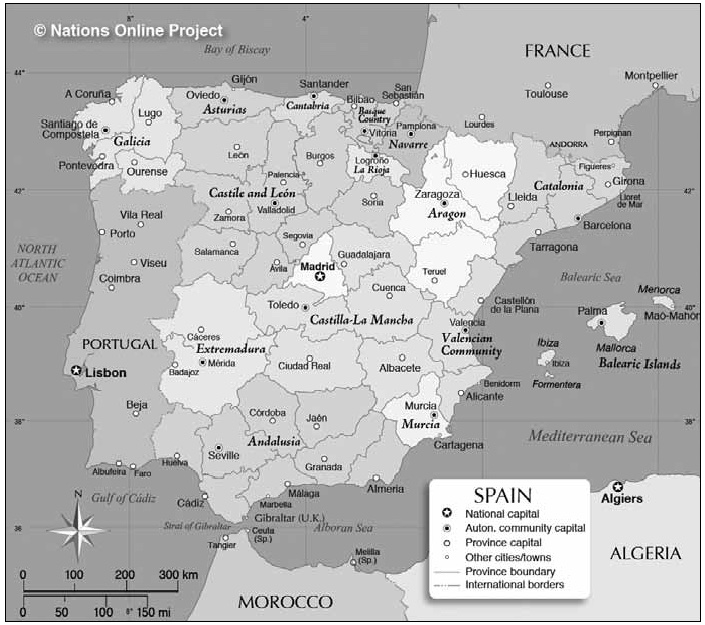The Catalans have the right to choose their future freely
The Catalans have the right to choose their future freely
by Dr phil René Roca, “Forschungsinstitut direkte Demokratie”* (Research Institute Direct Democracy)
I have Catalan roots. My paternal great grandfather immigrated from the Catalan peasant village Viladesens into Switzerland in 1888. He first settled in St. Gallen, worked for a compatriot at a bodega, and married a German cook. Together with her he moved to Zurich-Oerlikon and built up a Spanish bodega. My grandfather married a Spanish woman, who he had come to know during his numerous visits to Spain. Their relationship started during a traditional Catalan folk dance, the Sardana. This folk dance, like the Catalan language was forbidden under the Franco-dictatorship (1939–1975). Singing Catalan songs was also strictly forbidden under the penalty of rigorous punishment. I remember well – meanwhile my grandparents had returned to Spain – that after the dictator’s death all the place-name signs in the towns were corrected from Spanish (Castilian) into Catalan – painted by hand. In the people’s hearts, the Catalan language and culture – their freedom – had remained alive.

The Catalan nation
The Catalan language developed between the 8th and the 10th century and was the strong expression of an independent community. The Catalan history is pivotally characterised by fight for freedom, independence and autonomy. For example, the situation after the “Spanish war of Succession” (1701–1714): The allied states Castile and France destroyed the Catalans who were allied to England and Austria. Castile, with its capital Madrid, annexed Catalonia and its territories, abolishing all Catalan rights and banning the Catalan language. Such things repeatedly happened. The well-known Catalan writer and anthropologist Albert Sánchez Piñol states it this way: “In 1714, Spain ceased to be a confederation and became what it is today: a strictly Castilian project. Every time a republic was proclaimed or a dictator died, with every democratic upheaval, Catalonia led the longing for collective freedom. Til today.”
Constitution with deficiencies
In 1978, after the Franco dictatorship and a short transitional period, Spain gave itself the still valid democratic constitution. The Spanish people sanctioned this constitution, as the majoritarian of the Catalans did also. The latter received a so-called Statute of Autonomy, which from then on gave them certain political freedom. However, until today the constitution can only be changed by the Spanish central government, respectively the parliament in Madrid. There is no constitutional right of referendum or initiative in Spain. In 2006, following a proposal by the Catalan Parliament, the Spanish Government and Parliament opted for an improved and expanded Statute of Autonomy (for example on the tax issue). The Catalan people gave their blessings to the changes by referendum. Then, of all people, Mariano Rajoy and his conservative party, then sitting in opposition, filed a complaint against the new Catalan Statute of Autonomy at the Spanish Constitutional Court. The court finally overturned (after four years of proceedings!) the democratically negotiated compromise: it eliminated fourteen central articles of the statute and corrected twenty others. That was the birth of the today’s independence movement.
What is to be done?
Since then, the Spanish government has denied any dialogue. Rajoy is now head of government. He himself and his party, the conservative Partito Popular (PP), are involved in various corruption scandals. Ironically, this party is now arguing with the democratic constitutional state. Nothing can be expected from either this party or its head of government. Even the lawyers are of no help. Most of the time they negotiate the conflict in a positivist way and never apply the principles of natural law. The European Union (EU), which otherwise interferes permanently in the internal affairs of its member states, completely failed to support the Catalan position. The EU is afraid that in the Euro area more people would want to emancipate themselves. This would contradict the centralized and undemocratic construct of the EU. The international capital that follows an unfortunate chaos-theory has already spread its net.
Therefore, there is only one thing: the international community must support the Catalan people to obtain their rights. One solution, for instance, would be the return to the Autonomy Statute, which was negotiated in 2006. However, this requires that a dialogue takes place on equal footing between Madrid and Barcelona, because “Democracy means Dialogue”, as the “Neue Zürcher Zeitung” recently titled. •
* Dr René Roca heads the “Forschungsinstitut direkte Demokratie FIdD” (Research Institute Direct Democracy).
Catalonia’s autonomy
1469 Union of Aragon and Castile, Catalonia as part of Aragon remains internally independent
1479–1713 rule of Spanish viceroys in Catalonia
1635–1659 French-Spanish War, Catalonia remains part of Spain, parts to France
1700–1714 defeat of Catalonia in the Spanish War of Succession, Catalonia without self-administration
1812–1814 Catalonia part of French Empire
1814–1923 again part of Spanish Monarchy without autonomy
1923–1931 military dictatorship of Miguel Primo de Rivera
1931 Second Spanish Republic
1932 autonomy since 1714 again newly codified
1936–1939 Spanish Civil War
1939–1975 Franco dictatorship, centralisation, autonomy suspended
1939–1977 The Catalan autonomous government keeps on existing during the dictatorship abroad
1978 Spain becomes parliamentary monarchy
1979 new statute of autonomy by new Spanish constitution
2006 vote on extended statute of autonomy approved by government and king since 2007 Economic
crisis, Spain under economic dictation of EU
28.6.2010 Partito Popular (Rajoy) sues in Spanish constitutional court which after 4 years declares statute
of autonomy unconstitutional in 14 out of 223 points
2009–2011 553 of the then 947 Catalan cities and municipalities vote for referendums on independence
9.11.2014 form a total of one third of voters 80% approve independence, the vorte is prohibitid by Spanish
court
1.10.2017 Independence approved by the people in a referendum
10.10. 2017 declaration of independence suspended by Catalan government in favour of negotiations with
Spain
21.10.2017 Central government announces dismissal of Catalan government
27.10.2017 Catalan Parliament approves independence, impeachment of Catalan government by central
government
21.12 2017 Spanish central government calls new elections